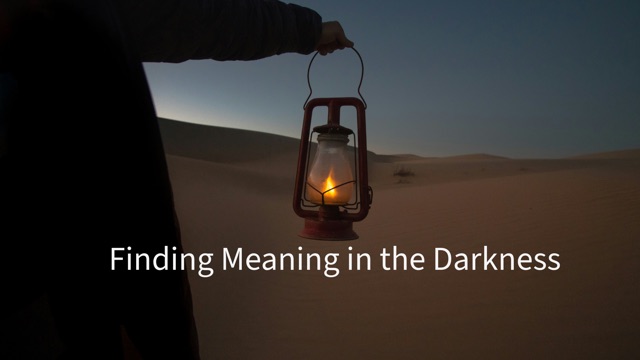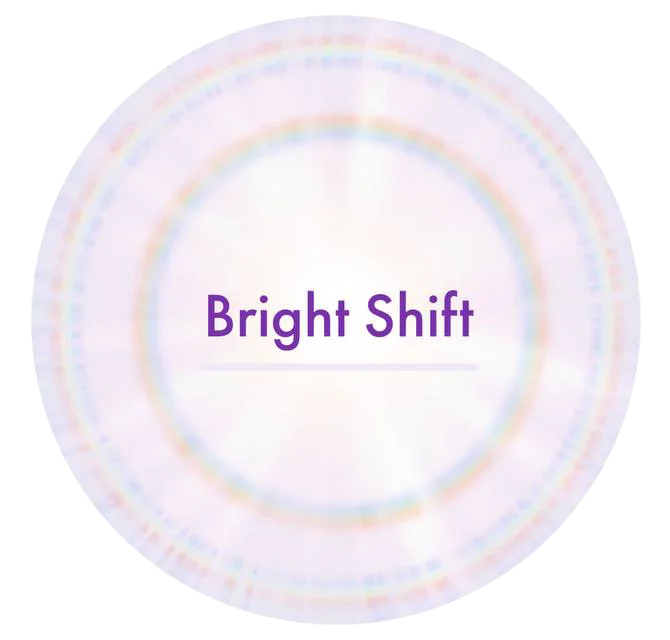Finding Meaning in the Darkness

There are times in life when things stop making sense. You may feel disconnected, empty, or lost. The goals that once motivated you no longer inspire. The roles you played no longer fit. And underneath it all, there’s a quiet, persistent discomfort that you can’t explain. It’s in these moments that finding meaning in the darkness becomes not just a desire, but a necessity—a path toward understanding, healing, and rediscovery.
This is what mystics and poets have long called the dark night of the soul.
The dark night is usually triggered by life events: loss, change, disappointment, or even a growing feeling of emptiness despite outward success. But the real work is happening inside. You may feel emotionally flat, spiritually disconnected, or unsure of your direction.
It’s a deeper, internal shift where your old sense of self begins to fall away, making space for something more authentic to take shape.
A confrontation with meaninglessness that, paradoxically, births new meaning.
The phrase “dark night of the soul” originates from the 16th-century Spanish mystic and poet St. John of the Cross, a Carmelite monk and major figure in Christian mysticism.
St. John was imprisoned by his own Carmelite brothers for pushing reforms. During this time of extreme suffering and isolation, he underwent a profound spiritual crisis — which became the seed of his mystical insight.
In St. John’s original sense, the “dark night” refers to a spiritual purging — a painful process where the soul is stripped of all attachments, certainties, in order to prepare it for union with the Divine.
Later on Carl Jung and other depth psychologists adopted this phrase metaphorically to describe periods of profound psychological transformation.
In this sense, the “dark night” is not just a crisis, but an initiation — a descent into the unconscious that, if endured consciously, leads to a more authentic Self.
The Gift of Not Knowing
In our goal-oriented culture, uncertainty is treated like a disease to be cured. But the dark night is not a problem to solve—it is a passage to surrender to. It asks us to feel deeply rather than fix quickly. To let go before we understand. To sit with the silence and listen for what emerges, not force it into being.
Many people try to escape this phase by staying busy or finding quick solutions . But, The darkness has its own rhythm. It will not be rushed.
The confusion, doubt, and discomfort are part of the transformation. Your sense of meaning is being reshaped. Your inner life is being reorganized. And that takes time.
Inner Alchemy
During this time, we may feel anger, despair, numbness, or fear. But these are not signs of failure. They are signs of shedding. They are proof that something deeper is moving through us—rearranging the furniture of our psyche, making space for a soul that has outgrown its old container.
Though painful, the dark night is not a dead end—it is an alchemical process. It burns away illusions. It exposes attachments. It dissolves the ego’s tight grip on control.
Holding the Night
We are not meant to “fix” the dark night. We are meant to hold it. To light a candle in the cave.
This is not the time for self-improvement. It is the time for self-remembrance. A time to ask quieter questions:
– What have I outgrown?
– What is trying to die in me?
– What am I being invited to see, feel, or become?
Here are a few things that can support you through the process:
• Accept the uncertainty: You don’t need to have answers right now. This is a time of listening, not fixing.
• Give yourself space: Reduce pressure where possible. Rest more. Say no more.
• Notice what no longer feels true: Pay attention to what you’re naturally drifting away from.
• Stay connected to what grounds you: Even small routines, nature, journaling, or creative expression can help.
• Seek meaningful support: Speak with people who can sit with you in your process.
On the Other Side
Eventually, something shifts. Not all at once, but like dawn through fog. We find ourselves breathing again, not necessarily because the circumstances changed, but because we have.
The dark night strips away what’s false or outdated. What emerges is a version of yourself that is more in line with your deeper values.
The process isn’t easy. But it often leads to stronger self-awareness, greater emotional resilience, and a clearer sense of what truly matters.
And this, perhaps, is the secret: the dark night is not the opposite of light. It is the doorway to it.
